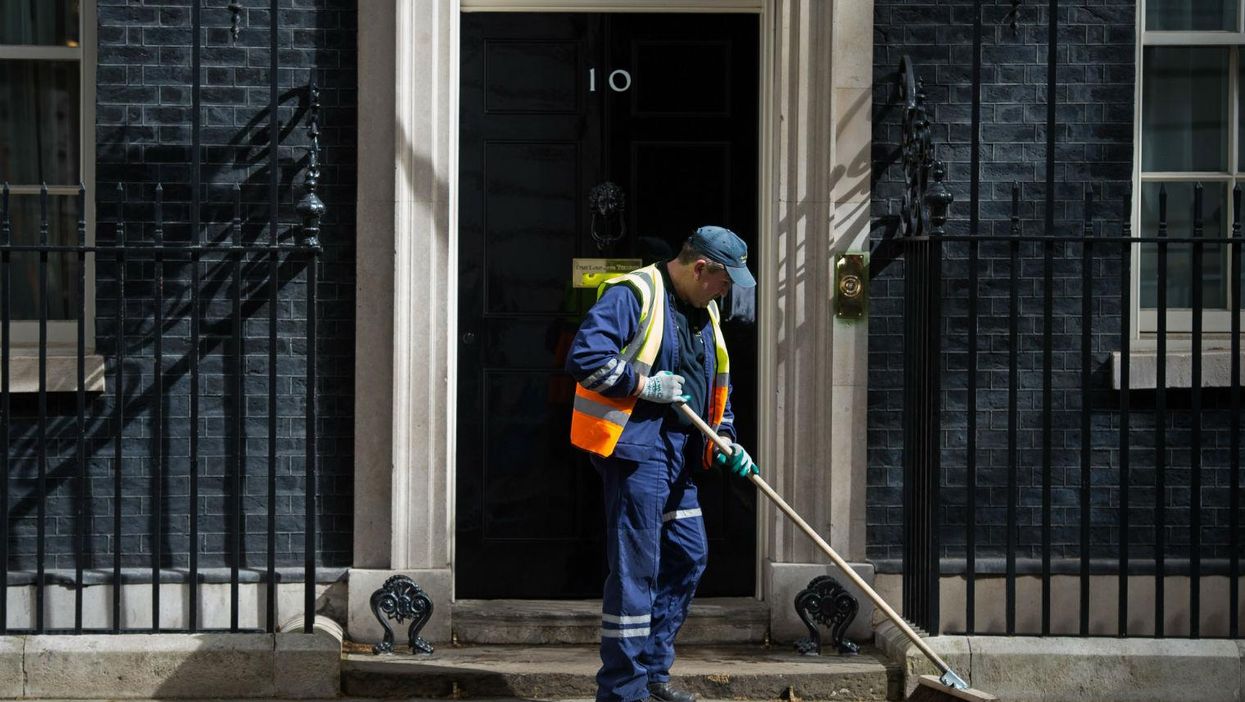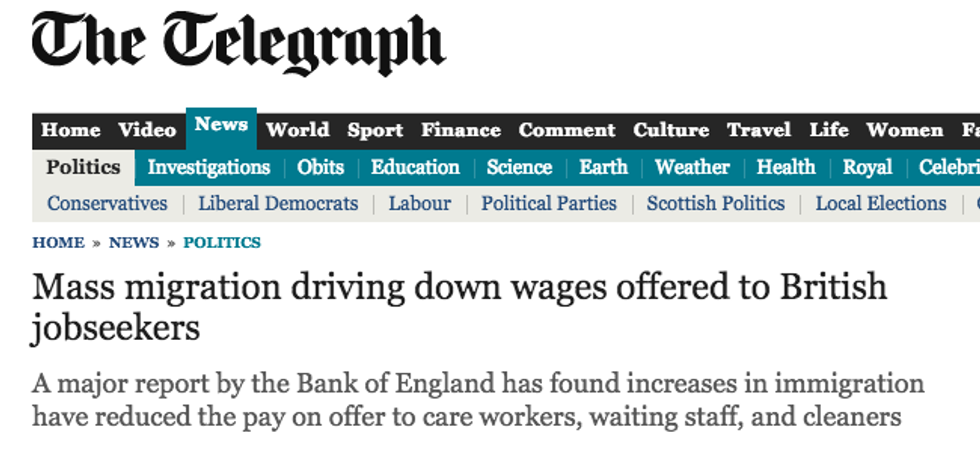News
Bethan McKernan
Jan 19, 2016

(LEON NEAL/AFP/Getty Images
"Mass migration driving down wages offered to British jobseekers", The Telegraph's home page read last month.
"REVEALED: Mass immigration HAS driven down wages of British-born workers', said The Express. "Cut immigration to help working class Britons."
While the headlines, purportedly drawn from a Bank of England working paper, were seized on as evidence that immigration is out of control by groups like Ukip and Britain First, it may not surprise you to learn that these news stories didn't actually convey the real story.
The BoE report analysed the impact of immigration on wages in the low- and semi- skilled sectors, finding:
The coefficients indicate that a 10 percentage point rise in the proportion of immigrants working in semi/unskilled services - that is, in care homes, bars, shops, restaurants, cleaning, for example - leads to a 1.88 percent reduction in pay.
What anti-immigration campaigners failed to notice, though, is that this isn't the story.
As Jonathan Portes of the National Institute of Economic and Social Research has noted, the paper had actually been previously published in 2008, when it predicted that mass migration would lead to a 5.2 percent reduction in pay, rather than 1.88, as the 2015 update found.
Not only did the report show that the impact was smaller than previously thought, thanks to better and more accurate estimates, it was also calculated using a very high hypothetical test proportion of 10 per cent - the actual rise in the sector between 2004-2006 was seven percentage points.
All of this means that even if immigration levels were as high as 10 per cent - which they're not - the overall impact on the sector would be a reduction in wages of about 1p an hour.
And that doesn't even factor in that "the level of the minimum wage, the decline in trade union power, technological and industrial change" have most likely had a far bigger impact on wages.
As Portes puts it:
The idea that immigration is the main or even a moderately important driver of low pay is simply not supported by the available evidence.
Politicians who claim the contrary are either so obsessed with immigration that they are blind to more important issues - or they are merely trying to divert attention from their failure to propose policy measures that would actually make a meaningful difference to the low paid.
In recent weeks the government has said that if new arrivals on spousal visas don't learn a satisfactory level of English in 2.5 years, or economic earn salaries of more than £35,000 after 5 years, these factors will now weigh into visas and deportation decisions.
Critics have said that the measures could break up families, and prove detrimental to lesser-paid industries such as the tech sector and NHS.
Top 100
The Conversation (0)














